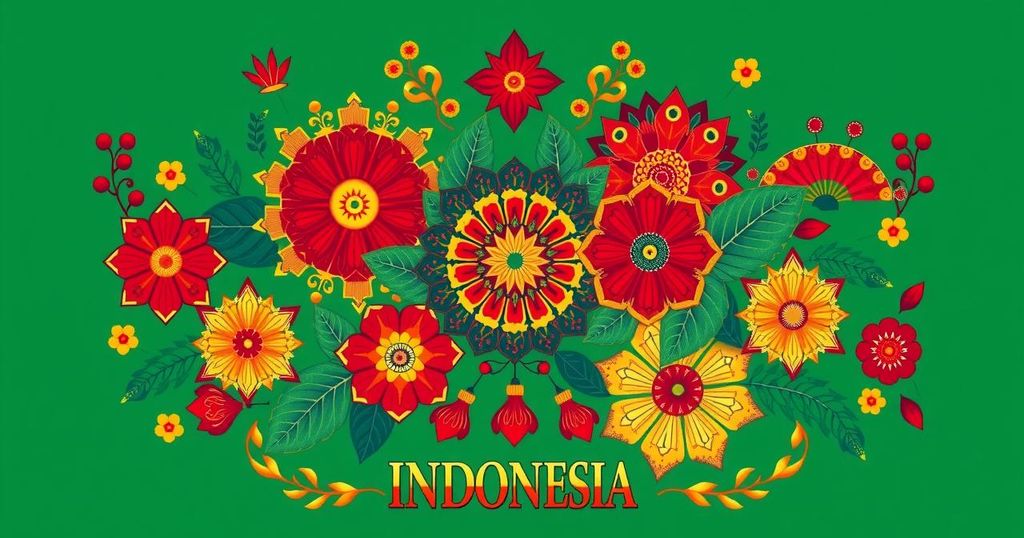Indonesia’s Political Turbulence: Understanding the Student Protests and Beyond
Amid ongoing student protests against President Prabowo Subianto, Indonesia’s political landscape is under scrutiny. Addressing issues from policy implementation to historical grievances, the government’s popularity faces challenges. Despite budget cuts and military involvement, Indonesia aims to strengthen its democracy and international partnerships while promoting cultural connections, particularly with the UK.
Indonesia is currently experiencing a surge in student protests following President Prabowo Subianto’s inauguration. Staff Writer Lara Bevan-Shiraz explores the implications of these protests both nationally and internationally, highlighting her exclusive interview with Allesandro Bernama, the Head of Political Affairs at the Indonesian Embassy in London.
As a MINT country with potential as a model for moderate Islam, Indonesia is navigating its identity amidst opportunities and risks. Participating in the electoral processes, the country has a significant youth demographic, particularly since Prabowo utilized social media strategies to engage younger voters, many of whom are under 40 and aware of the influential role of student activism in Indonesian history.
Despite securing an 80% approval rating due to his social media appeal, Prabowo faces discontent as key policies like free health check-ups and school meals falter in execution. His administration’s recent budget cuts and the expansion of military involvement in government affairs have sparked protests, suggesting that his early popularity may be diminishing as the honeymoon phase passes.
In her interview, Bernama elaborated on Indonesia’s motto, “Unity in Diversity,” comparing it to the European Union’s theme. He acknowledges Indonesia’s democratic progress through numbers such as 22% female representation in the government and significant voter turnout, illustrating its growing influence on the world stage.
Bernama further emphasizes Indonesia’s historical approach to foreign policy, as the nation aspires to act as a bridge in global dialogues. This approach sees Indonesia actively participating in international organizations like BRICS and offering humanitarian support, highlighting its commitment to uphold humanitarian principles and international law.
Questions surrounding the ratification of the Genocide Convention reveal Indonesia’s history of trauma, particularly regarding the anti-Communist massacres and actions in East Timor. Bernama, while acknowledging the complexities of this issue, redirected the discussion towards Indonesia’s human rights commitments, underscoring efforts to reconcile painful pasts and foster dialogues with victims.
Bernama perceives the ongoing student protests as reflective of a healthy democracy, affirming that youth engagement is crucial for holding government accountable. Recent demonstrations have been partly ignited by Prabowo’s constitutional changes allowing greater military involvement, signaling persistent public dissatisfaction with his administration.
Furthermore, despite recent budget cuts that have reduced cultural programs at the embassy, Bernama assures that student support abroad will remain unaffected, showcasing Indonesia’s dedication to educational opportunities.
On strengthening relations with the UK, Bernama described the two countries as “natural partners,” referencing recent diplomatic engagements and shared initiatives. Upcoming cultural events, such as the showcase at the National Geographic Traveller Food Festival and CelebrASIA 2025, highlight Indonesia’s vibrant arts and heritage.
In addition to governmental programs, the embassy also offers language lessons and cultural activities like Gamelan and Angklung classes, aiming to foster understanding and appreciation between the UK and Indonesia as part of their bilateral relationship.
In conclusion, Indonesia is navigating a tumultuous political landscape marked by student protests against President Prabowo Subianto. While the government capitalizes on youth engagement and pays attention to diversity, it combats criticisms of its governance, including issues related to budget cuts and military involvement. The country’s strategic intentions in international relations remain strong, aiming to reconcile historical grievances and build partnerships like that with the UK, as it fosters cultural exchanges and educational opportunities.
Original Source: roarnews.co.uk




Post Comment